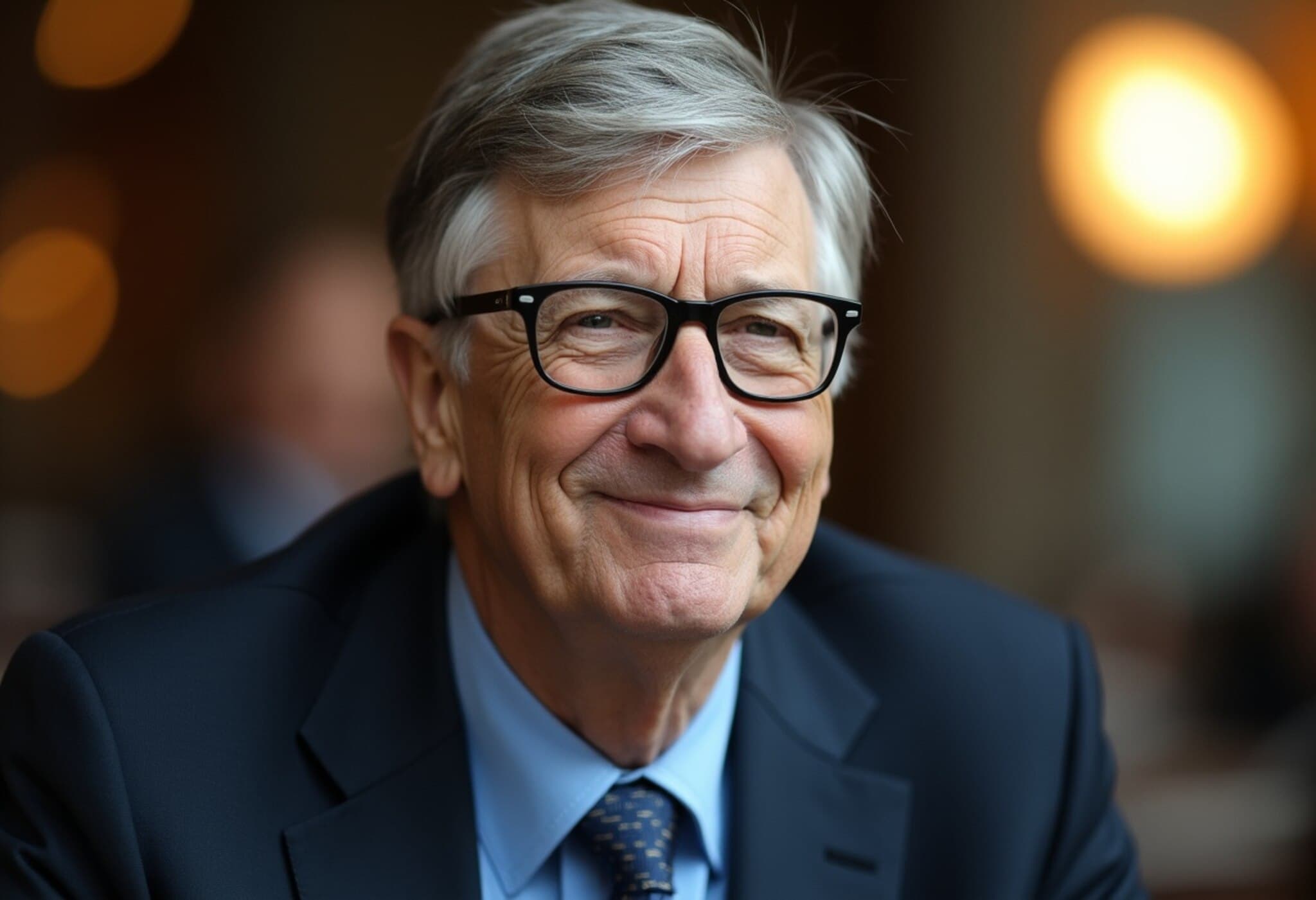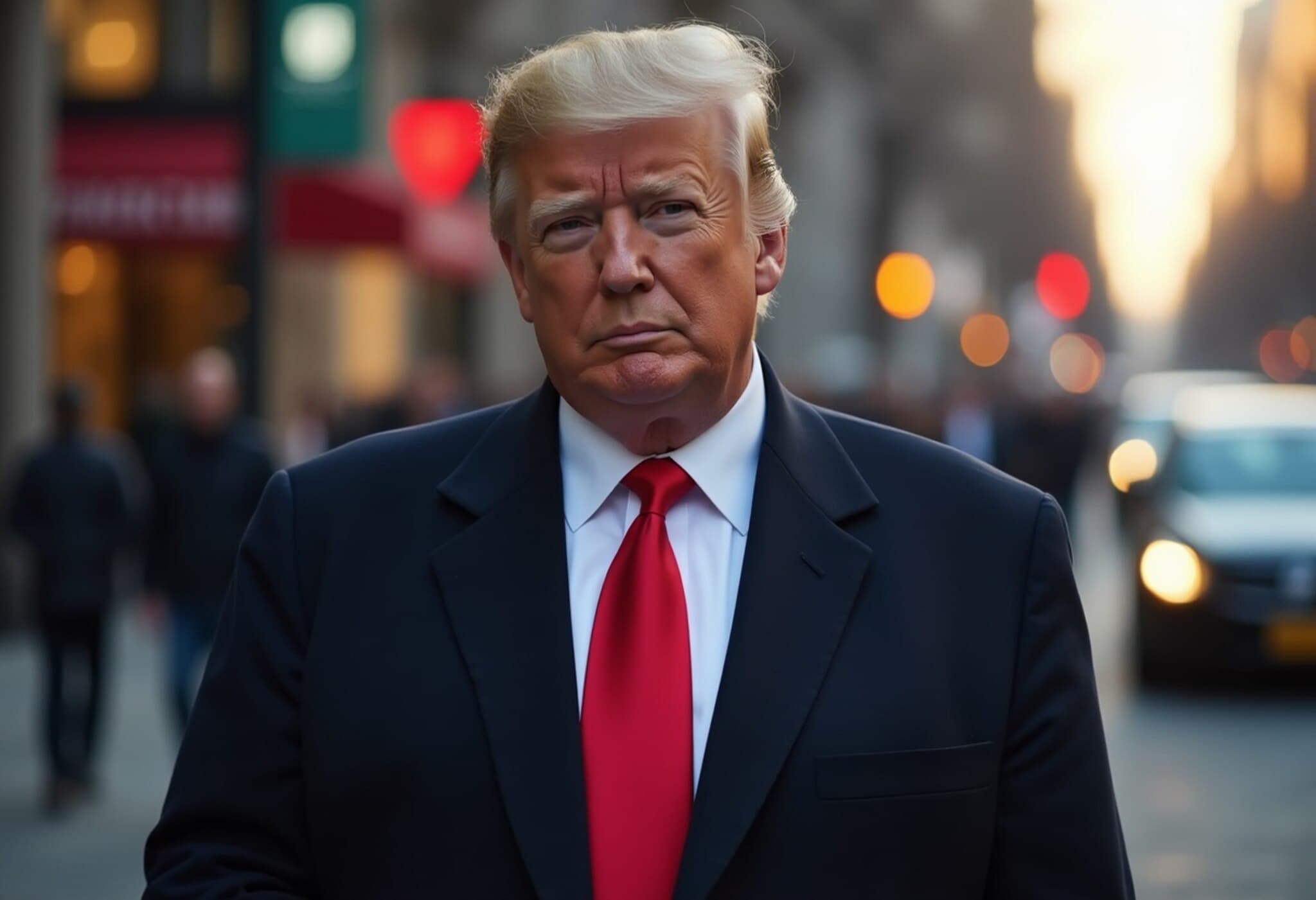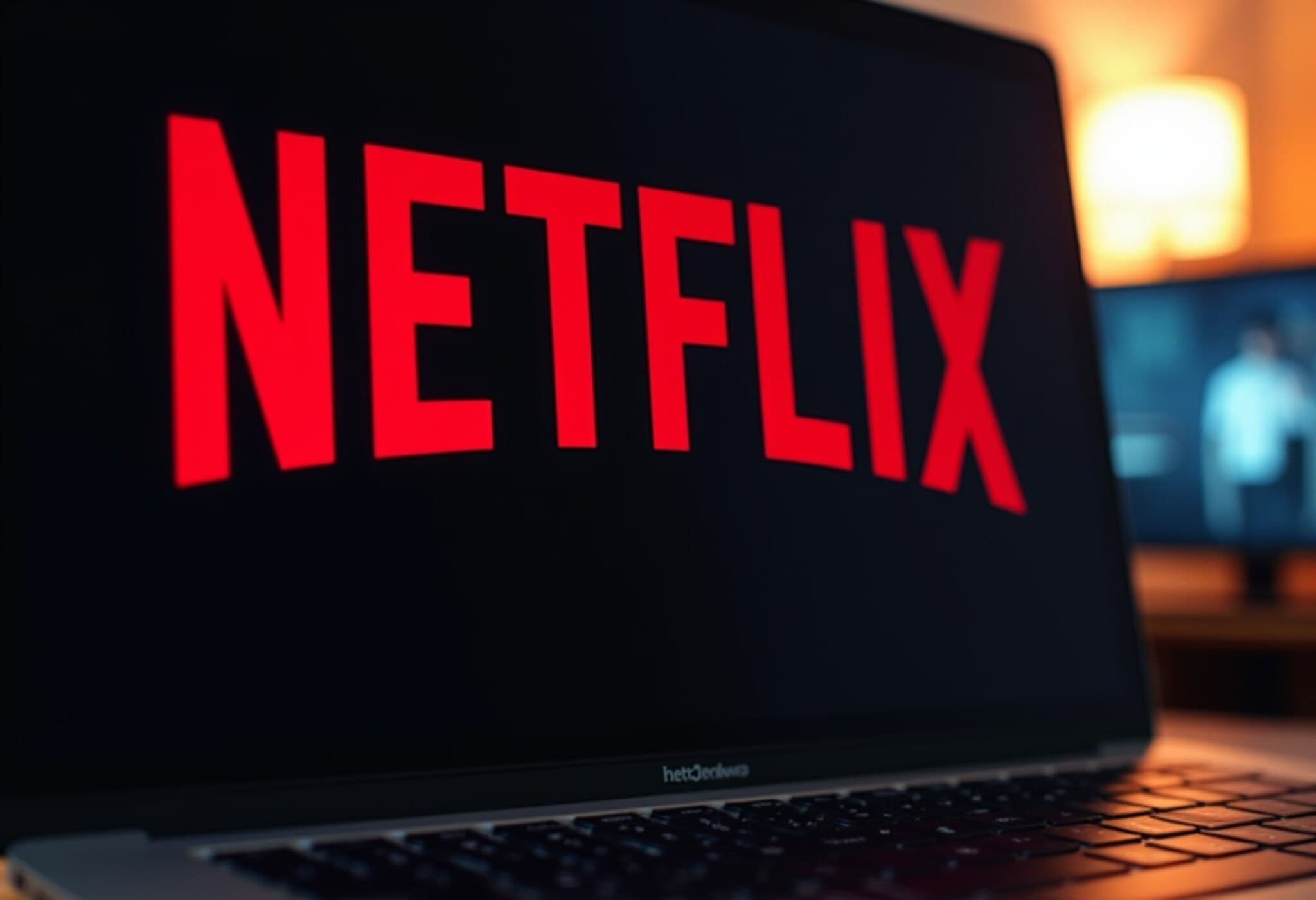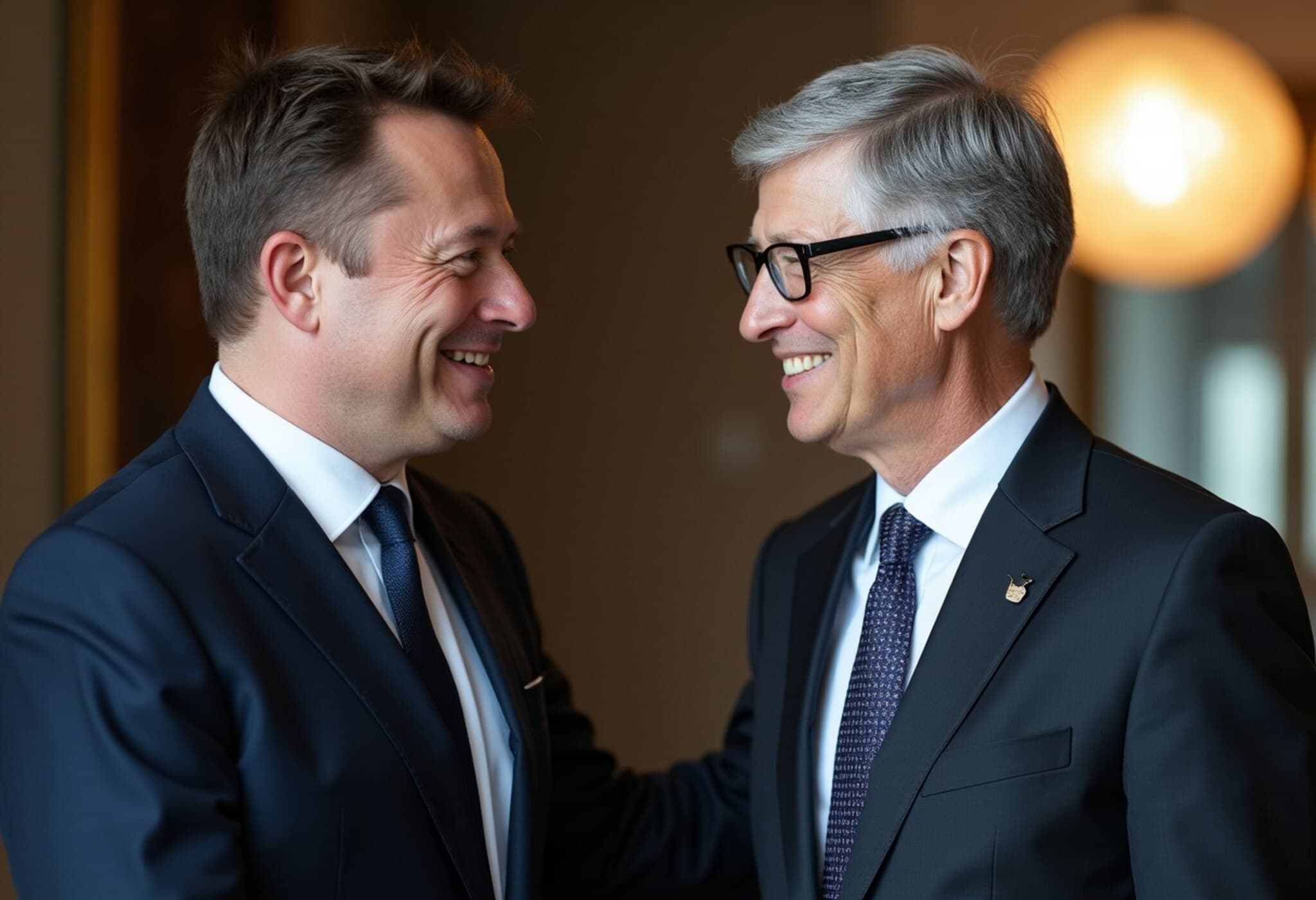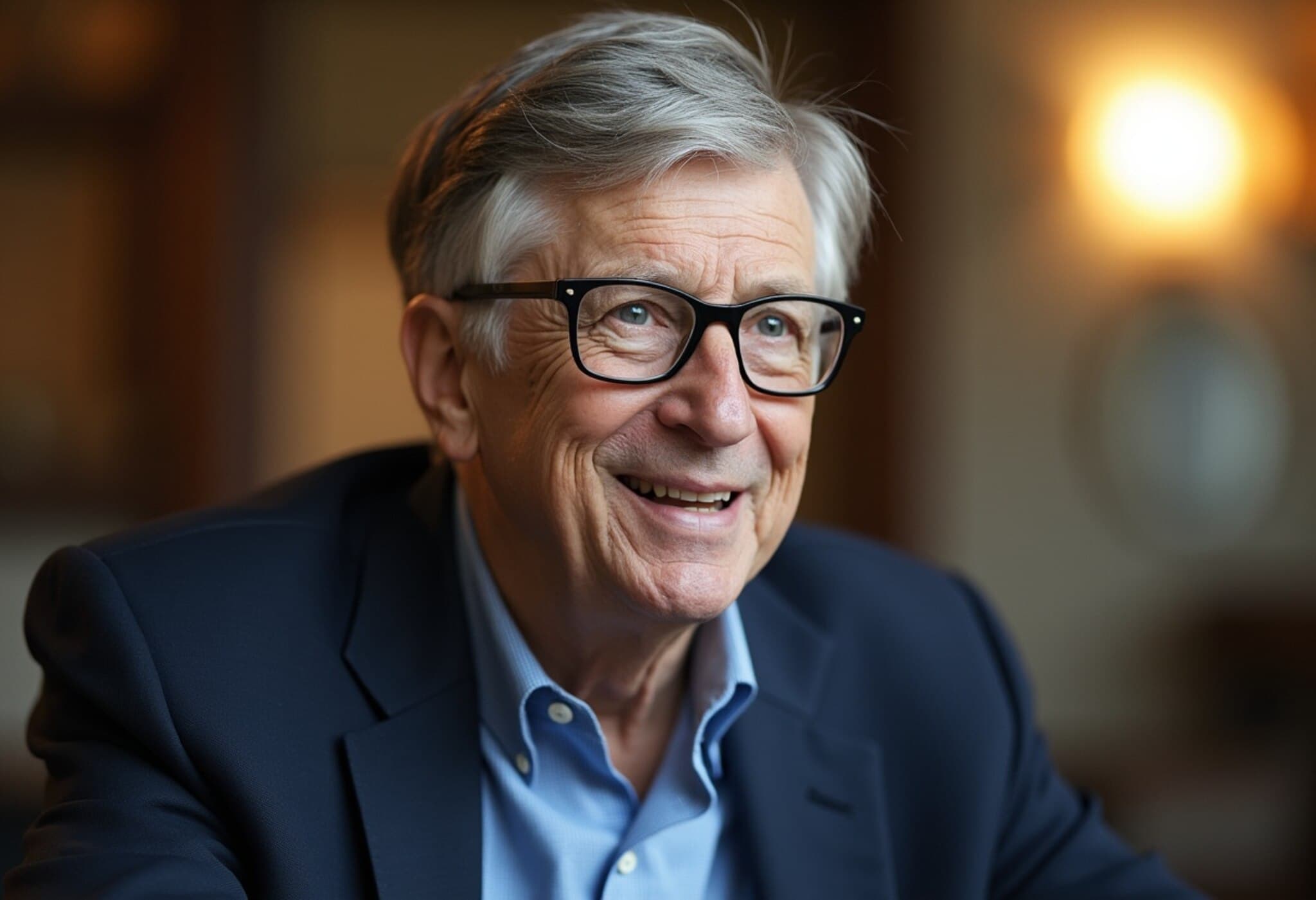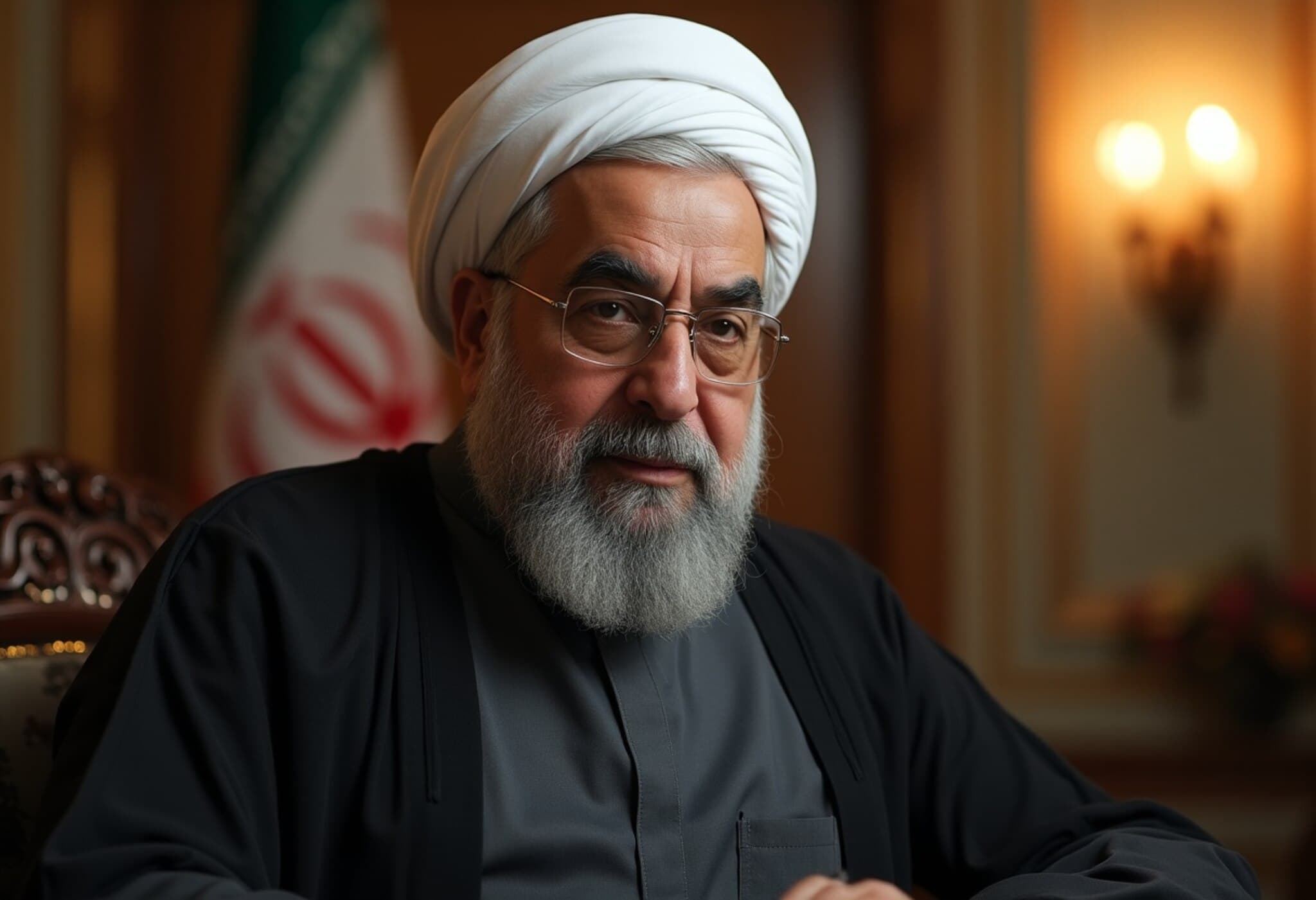Bill Gates Slides Out of the World's Top 10 Richest Individuals
In a remarkable reshuffle of global wealth rankings, Bill Gates, co-founder of Microsoft, has slipped out of the top ten richest people worldwide after his net worth took a significant hit — a 30% decline within just one week. This adjustment, driven largely by a recalculation that accounted for his extensive philanthropic donations, saw his fortune fall by roughly $52 billion, leaving Gates ranked twelfth on the Bloomberg Billionaires Index.
Steve Ballmer Surpasses Gates, Taking Fifth Place
Former Microsoft CEO Steve Ballmer, once Gates’ assistant, has leapfrogged the tech icon with a net worth now estimated at $172 billion. Ballmer’s wealth surge is notable given his trajectory from employee to one of the world’s richest individuals — a story powered by his substantial equity stake in Microsoft and the stock’s explosive growth over the past decade. With this new positioning, Ballmer now sits ahead of Gates, as well as tech magnates like Alphabet’s Larry Page and Sergey Brin, Nvidia’s Jensen Huang, and Warren Buffett.
The Role of Charitable Giving in Weighing Wealth
Bloomberg’s adjustment acknowledges increased transparency about Gates’ philanthropic commitments, refining how wealth appreciation rates are calculated by factoring in his substantial outside charitable giving. So far, Gates and his ex-wife, Melinda French Gates, have donated about $60 billion to the Gates Foundation, positioning their foundation as one of the largest philanthropic endeavors in modern history. Warren Buffett, another key contributor, has donated around $43 billion.
Gates’ Long-Term Giving Plan and Financial Strategy
Back in May, Gates publicly committed to donating nearly all of his estimated $108 billion net worth through the foundation over the next two decades. He envisions the foundation will expend upwards of $200 billion before ceasing operations by 2045. Despite these charitable eye-openers, Gates retains about 1% ownership in Microsoft and still controls extensive holdings via Cascade Investment, his private portfolio with diversified interests across real estate, energy, and publicly traded companies.
Understanding Ballmer’s Wealth Rise
Ballmer’s journey to surpassing Gates is a fascinating case study in compensation and investment strategy. Becoming Microsoft CEO in 2000, Ballmer left the company in 2014 holding a potent 4% equity stake. While Gates and co-founder Paul Allen diversified their holdings earlier, Ballmer elected to maintain a majority of his Microsoft shares. The company’s stellar stock performance over recent years has richly rewarded that decision, inflating his wealth to record heights. Additionally, Ballmer is well known for owning the NBA's Los Angeles Clippers, demonstrating his diversified business ventures beyond tech.
Expert Insights: What This Means for Wealth Rankings and Philanthropy
From a policy and economic standpoint, Gates’ recalibrated net worth underscores how philanthropy increasingly influences wealth assessments. It challenges traditional notions that billionaire rankings merely reflect amassed assets, instead spotlighting intentional wealth distribution through charitable vehicles.
Moreover, Ballmer’s rise invites reflection on the nuances between company founders and successors regarding equity strategies. His story illustrates how executive compensation structures and investment choices can significantly alter long-term wealth trajectories.
In the broader American and global context, these shifts raise compelling questions about wealth consolidation, responsible giving, and how tech-driven fortunes evolve against dynamic markets and personal values.
Editor’s Note
Bill Gates’ recent slide down the billionaires list is not just a tale of numbers — it’s a testament to his commitment to impactful philanthropy, reshaping how society perceives immense wealth. Meanwhile, Steve Ballmer’s ascent underscores the intricate dance of corporate equity and strategic investment. Together, their stories invite readers to think beyond mere rankings and consider the human decisions behind these fortunes.
How might greater transparency in charitable giving redefine billionaire wealth metrics in the future? And what lessons do executives’ wealth trajectories offer for aspiring entrepreneurs and policymakers alike? Stay tuned as these conversations evolve.

